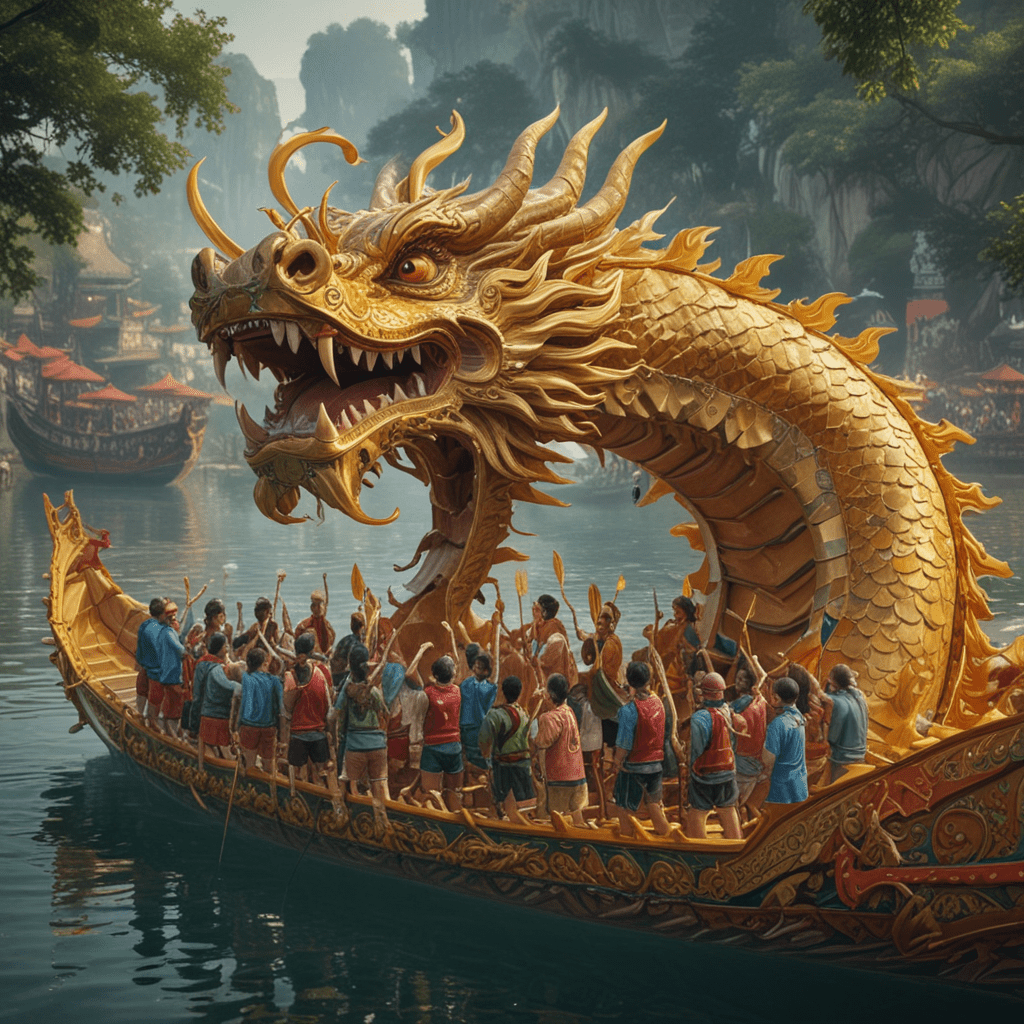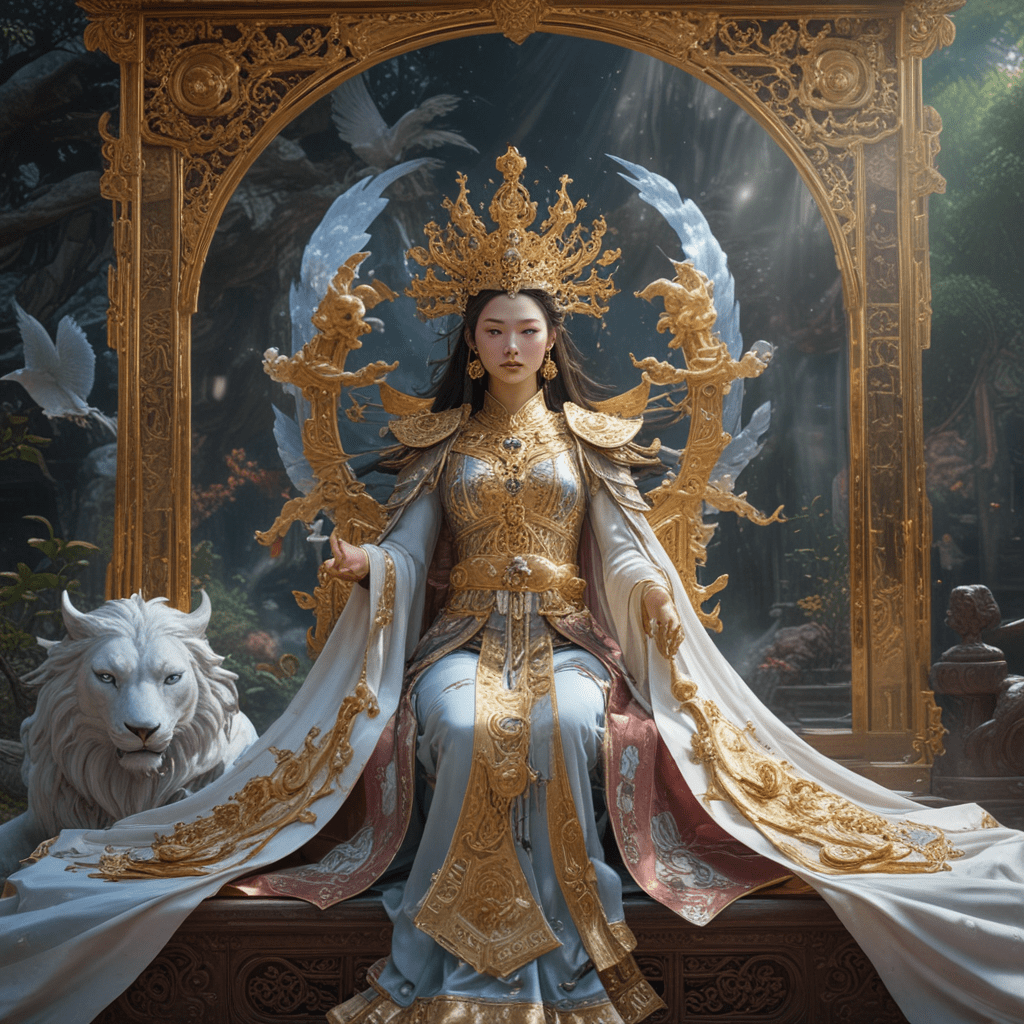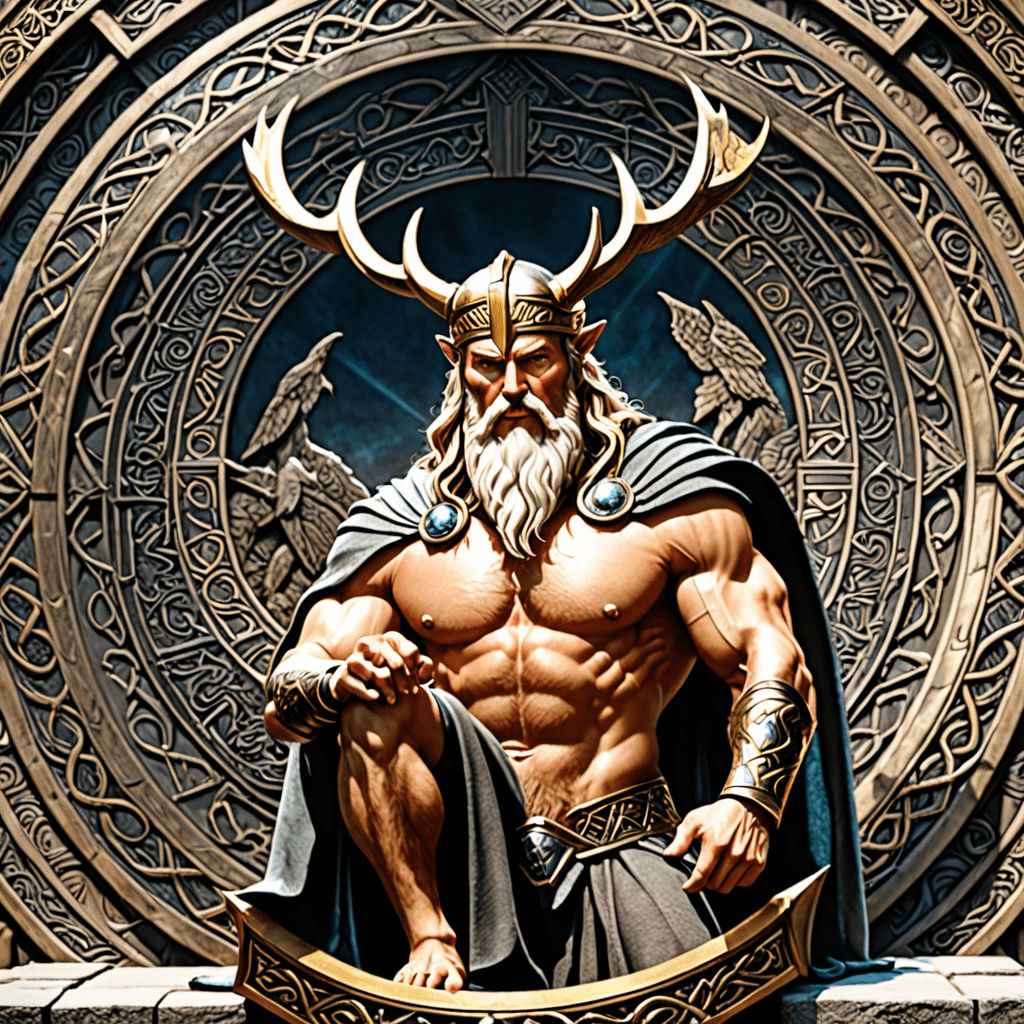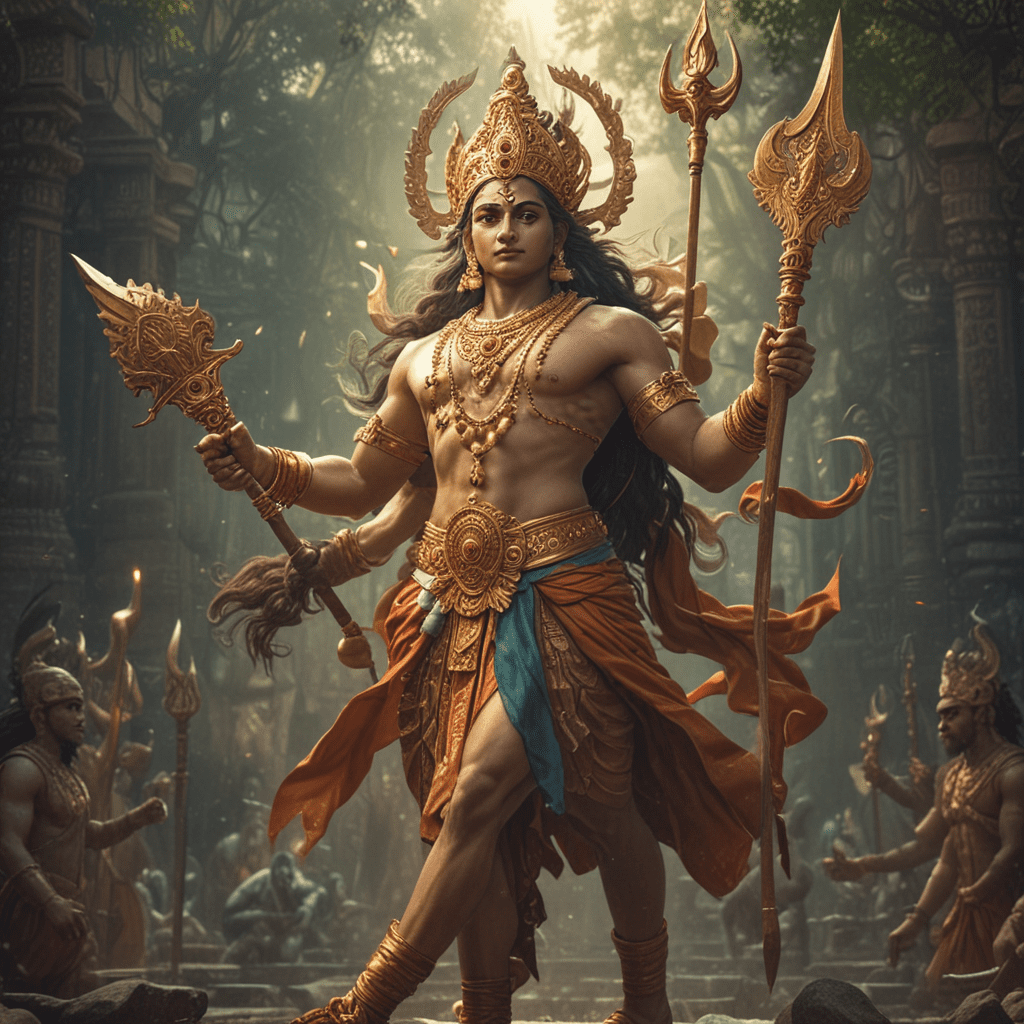The Legend of the Dragon Boat Festival in Chinese Mythology
Introduction
The Dragon Boat Festival is a traditional Chinese festival celebrated annually on the fifth day of the fifth month of the lunar calendar. It is a day of remembrance for the life and legacy of Qu Yuan, a renowned Chinese poet and statesman who lived during the Warring States period (475-221 BCE). The festival is celebrated with dragon boat races, the making and eating of zongzi (glutinous rice dumplings), and other traditional customs.
The Tragic Demise of Qu Yuan
Qu Yuan was a loyal and patriotic minister who served the state of Chu. He was known for his integrity and unwavering belief in the importance of national unity. However, his political ideals were not always shared by his contemporaries, and he was eventually ostracized and exiled. In despair, Qu Yuan drowned himself in the Miluo River.
The Villagers' Search
News of Qu Yuan's death spread quickly throughout the countryside. The villagers were devastated and set out in boats to search for his body. To prevent his remains from being devoured by fish, they beat drums and splashed water on the surface of the river.
The Appearance of the Dragon Boats
As the villagers searched, they noticed something unusual: their boats had taken on the appearance of dragons. The villagers believed that these dragon boats were a sign from the heavens that Qu Yuan had transformed into a dragon spirit. From that day forward, dragon boat races became a tradition to honor Qu Yuan's memory and to protect his spirit from evil spirits.
The Significance of Zongzi
After Qu Yuan's death, the villagers began wrapping glutinous rice in leaves and throwing it into the river to prevent fish from eating his body. This tradition evolved into the custom of making and eating zongzi, which are now a staple food of the Dragon Boat Festival.
6. Dragon Boat Racing
Dragon boat racing is a traditional and exciting part of the Dragon Boat Festival. These races involve teams of paddlers propelling long, narrow boats decorated with dragon heads and tails. The races are often held on rivers or lakes, with teams competing to reach the finish line first.
The origins of dragon boat racing can be traced back to the villagers' efforts to search for Qu Yuan's body. As they paddled their boats, they discovered that the rhythmic beating of their drums and the splashing of water kept away evil spirits. Over time, dragon boat racing evolved into a competitive sport, with teams competing for honor and glory.
7. Worshiping Qu Yuan
Qu Yuan is revered as a national hero and is worshipped in various ways during the Dragon Boat Festival. Temples and shrines dedicated to him are visited by devotees who offer prayers and make offerings. In some regions, people perform rituals such as throwing zongzi into the water as a symbolic offering to Qu Yuan's spirit.
The act of throwing zongzi into the water is believed to bring good luck and ward off evil spirits. It is also seen as a way of honoring Qu Yuan's memory and expressing gratitude for his sacrifice.
8. Cultural Implications
The Dragon Boat Festival holds significant cultural implications for the Chinese people. It is a time to remember the legacy of Qu Yuan and to celebrate the spirit of patriotism and national unity. The festival also plays an important role in promoting Chinese culture and heritage, both domestically and internationally.
9. Modern Adaptations
Over the centuries, the Dragon Boat Festival has undergone various changes and adaptations. While the core traditions remain the same, modern celebrations often incorporate new elements and interpretations. For example, dragon boat racing has become a popular international sport, with competitions held in many countries around the world.
10. Conclusion
The Dragon Boat Festival is a vibrant and meaningful tradition that has been celebrated for centuries. It is a testament to the enduring legacy of Qu Yuan and the importance of patriotism, unity, and cultural heritage in Chinese society. As the festival continues to be passed down from generation to generation, it serves as a reminder of the sacrifices made by those who have come before and the values that continue to shape Chinese identity.
FAQs
Q: When is the Dragon Boat Festival celebrated?
A: The Dragon Boat Festival is celebrated on the fifth day of the fifth month of the lunar calendar, which usually falls in June.
Q: Why do people eat zongzi during the Dragon Boat Festival?
A: Zongzi are eaten to commemorate Qu Yuan, who is believed to have thrown himself into the Miluo River. The glutinous rice in zongzi is said to have prevented fish from eating his body.
Q: What is the significance of dragon boat racing?
A: Dragon boat racing originated as a way to search for Qu Yuan's body and to protect his spirit from evil spirits. Today, it is a competitive sport that symbolizes teamwork, strength, and determination.
Q: How is Qu Yuan worshipped during the Dragon Boat Festival?
A: Qu Yuan is worshipped in various ways, including offering prayers, making offerings at temples and shrines, and throwing zongzi into the water.



